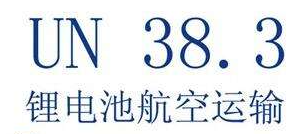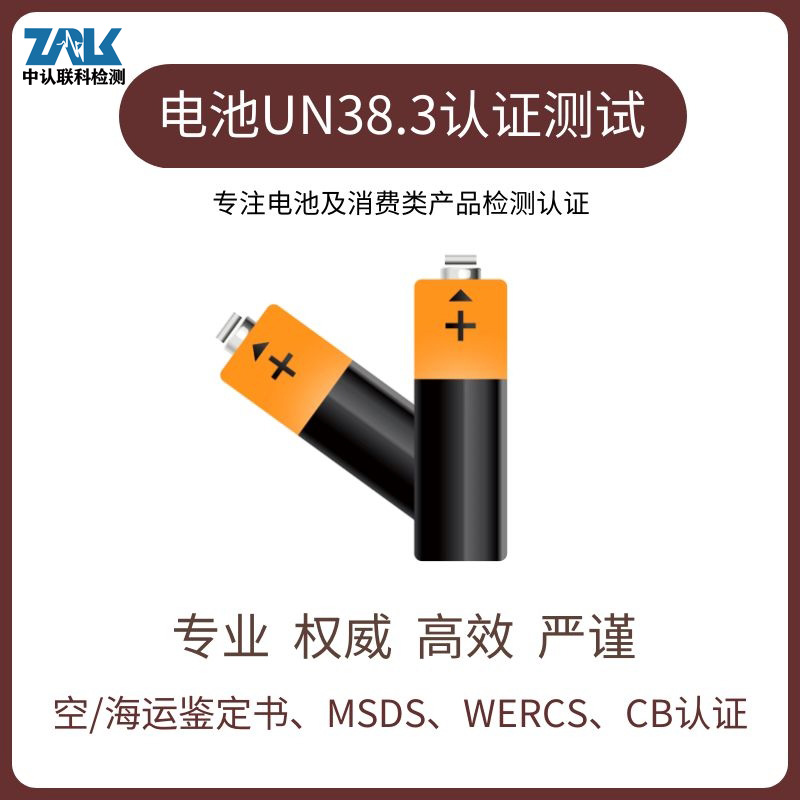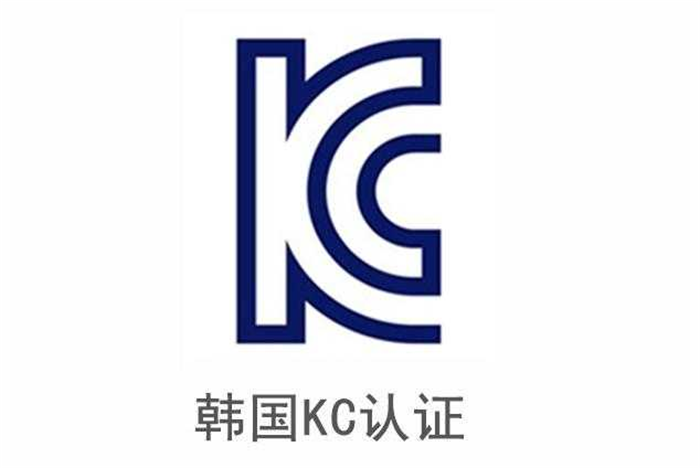In today's era of widespread electronic equipment, lithium batteries have become one of the most commonly used power sources because of their high energy density, long life and lightweight characteristics. However, the safety of lithium batteries is also increasingly concerned. In order to ensure the safety of lithium batteries during transportation and use, a series of strict standards and certifications have been developed internationally, the most famous of which is the UN38.3 certification.
What is UN38.3 Certification?
UN38.3 is a part of the Technical Instructions for the Safe Carriage of Dangerous Goods by Air (ICAO TI) developed by the DGP Panel of the International Civil Aviation Organization (ICAO). The standard specifies the safety performance test requirements for lithium batteries during transportation, covering the entire life cycle from design, production to transportation. UN38.3 certification includes a number of tests, such as height simulation tests, thermal tests, vibration tests, impact tests, etc., to ensure the safety of lithium batteries under various extreme conditions.

UN38.3 Importance of certification
1, ensure transportation safety: UN38.3 certification through rigorous testing to ensure that lithium batteries will not occur due to various environmental factors during transportation, reducing transportation risks.
2, improve product quality: UN38.3 certified lithium batteries usually mean higher quality and reliability. Production enterprises need to follow strict standards, from raw material procurement to production process control, every link must be strictly checked.
3, enhance user trust: consumers are more inclined to choose through the international certification of lithium battery products. UN38.3 certification not only enhances the competitiveness of the product, but also enhances the user's sense of trust.
4, compliance requirements: the laws and regulations of many countries and regions require that lithium batteries must pass UN38.3 certification when transported and sold. Manufacturers and sellers must comply with these regulations to avoid legal risks.

UN38.3 Certification implementation process
1, sample preparation: manufacturers need to prepare samples that meet the specifications to ensure that the sample represents the actual production of the product.
2. Test application: The enterprise submits the test application to a qualified third-party testing institution and provides the necessary technical data.
3. Test process: The third party testing institution conducts a series of strict tests on the samples according to the UN38.3 standard, including height simulation test, thermal test, vibration test, impact test, etc.
4, report issuance: After the completion of the test, the testing agency will issue a detailed test report, indicating whether the sample has passed all the test items.
5, certification: After passing all the tests, the company will receive UN38.3 certification certificate, proving that its products meet international safety standards.
UN38.3 certification is not only the international standard for lithium battery safety, but also an important guarantee to ensure product quality and user safety. Manufacturers and sellers should actively apply for and comply with this standard to enhance the competitiveness of products and market trust. When consumers choose lithium battery products, they should also give priority to brands that have passed UN38.3 certification to ensure the safety of use.


![[Holiday Notice] ZRLK 2026 Chinese New Year Holiday Schedule](/uploads/image/202602/698559be66d97.jpg)










